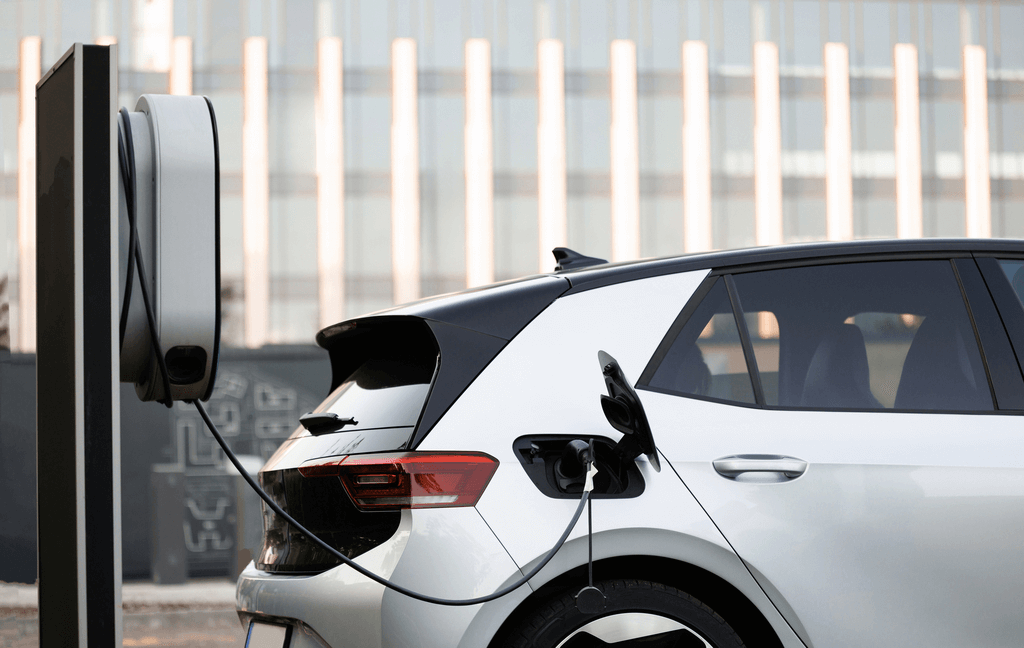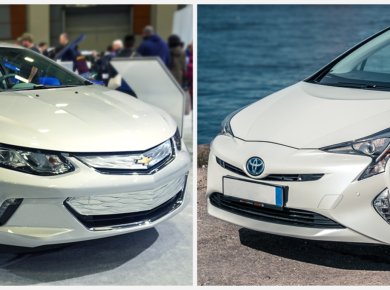Though a costly task, the transition to electric vehicles is becoming more and more necessary. To assist with this costly transition, regulatory institutions are taking steps that will encourage car enthusiasts and businesses to switch to eco-friendly options. That is where the electric vehicle tax credit comes into play. With Salvagebid, dive into the exciting world of EVs and discover more details about what the tax credit for an electric vehicle is and how it works.
If you are looking for a well-maintained used electric car for sale, take part in the top American online auto auctions by registering on the Salvagebid website and bidding on the vehicle of your dreams. Check out the full inventory of salvage vehicles available on our platform and test your luck with us.
What Is the Electric Vehicle Tax Credit?
In the United States, the EV tax credit serves as a special financial incentive. Its main goal is to encourage the adoption of clean and environmentally friendly means of transportation, particularly electric cars. Through financial incentives, the government aims to encourage the shift from conventional gasoline-powered vehicles to electric vehicles. In addition to the evident environmental advantages, EVs contribute to lowering our dependence on fossil fuels and enhancing air quality.
How does the electric vehicle tax credit work? It enables eligible car enthusiasts or businesses to reduce a portion of their tax liability when acquiring or leasing a qualifying electric vehicle. As a result, this tax credit helps consumers lower upfront costs for buying an EV, enhancing the affordability of electric vehicles.
Who Is Eligible for the Electric Vehicle Tax Credit?
Not every electric vehicle model qualifies for the EV tax credit. There are some criteria an electric car must meet to qualify for the tax credit. These requirements, defined by the Internal Revenue Service (IRS), cover both all-electric vehicles (EVs) and plug-in hybrid electric vehicles (PHEVs). On the IRS website, you can find the established requirements and EV models that are eligible for the tax credit.
Eligibility for the tax credit is contingent on various factors. These include the vehicle’s manufacturer’s suggested retail price (MSRP), the location of its final assembly, the sourcing of battery components, as well as your modified adjusted gross income (AGI). For example, the credit begins to phase out once a certain income threshold is surpassed. Presently, the phase-out initiates for individuals with an adjusted gross income (AGI) exceeding $200,000, or $400,000 for married couples filing jointly. Additionally, the vehicle’s purchase price must fall within the specified limits set by the IRS. Note that used electric cars are also eligible for the tax credit. Consider these criteria when determining the availability of credit for a specific electric vehicle.
Additionally, the IRS provides a comprehensive tool on the FuelEconomy website to assist taxpayers in assessing whether a particular vehicle qualifies for the tax credit. This tool allows users to input relevant information, such as MSRP, assembly location, and other key details, to determine eligibility. Keeping abreast of the most up-to-date information using this tool is advisable, as it ensures accuracy and compliance with the eligibility criteria.
It is crucial to understand that the tax credit is non-refundable. No refund is issued for any unused portion of the credit, and it cannot be carried forward to subsequent tax years. Moreover, electric car leasing may impact your eligibility for the tax credit, so you should understand the implications before making decisions.
How to Claim a Federal Tax Credit for an Electric Vehicle
To qualify for the tax credit, complete and submit IRS Form 8936 along with your federal income tax return. Ensure you retain all purchase documents, such as a sales receipt or lease agreement, as they will be necessary for verification purposes.
The deadline for claiming the tax credit typically aligns with the deadline for filing your federal income tax return. However, stay informed about any changes or extensions to the deadline. Consult with a tax professional or refer to the official IRS guidelines for the most accurate and up-to-date information.
Following the submission of your taxes and tax credit claim, the IRS will review your documentation. They may request additional materials to confirm your eligibility. It’s imperative to maintain all relevant records and promptly provide any requested information to prevent delays in processing your claim.
Summing Up
Understanding how the electric vehicle tax credit works can help those interested in cleaner transportation. This incentive encourages electric car adoption by reducing upfront costs and offering financial benefits. The IRS website contains all the information you need to know about obtaining the tax credit.
We at Salvagebid can assist you with choosing your best used electric car option for eco-conscious driving. Register on our online platform and bid on the vehicles of your dream. In case of any questions, you can call us at +1 (360) 347-1300 from 7 AM to 4 PM (Pacific Time) Monday through Friday, or email support@salvagebid.com.











